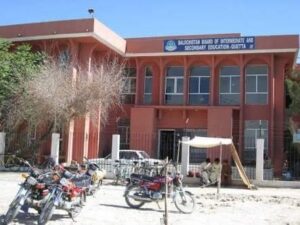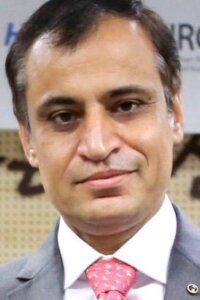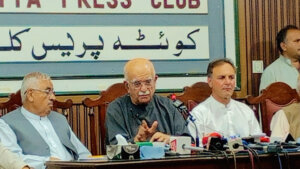Dr. Faisal Ahmed Khan
One year on, the chaos continues at the highest institution mandated to oversee higher education in the country. At the Higher Education Commission, the current chairman, Dr. Tariq Binuri, is still battling for his survival. While Dr. Binuri might barely complete his term this May, the future of higher education in Pakistan is set on a downward spiral.
The Higher Education Commission had evolved as an institution in two decades, assimilating many essential attributes and continually weeding out ill practices along the way. Exactly when the institution was in the middle of its development, it was struck with an unneeded blow of an arbitrary ordinance. The events that followed, it has directly exposed higher education to the whims of the power corridors for good.
The status of the Higher Education Commission is fast on its way to becoming a mere equivalent of a board of intermediate and secondary education overseeing tertiary education. It is approaching being completely subsumed in the black hole of public officialdom. Perhaps it was frowned upon as a peculiar case in the public sector for its relatively superior standards in education and governance. Therefore, it was felt that it needed to be governed by colleagues who oversee the rest of the education domain.
The role of the federal government enhanced in HEC affairs
This is clear from the fact that the tenure of the chairman is reduced to two years and the role of the federal government has been enhanced in the HEC affairs. Inevitably, the same wizards in the government will oversee HEC, who have earned some interesting distinctions for us. For example, according to a UNICEF report, we have the second-largest number of out-of-school children after Nigeria, i.e., about 22.8 million children out of school. Only about 67% of our kids finish primary school; and only 55% of those in grade 5 can solve a two-digit subtraction (reported in a survey by South Asia Forum for Education Development), not to mention the evil of evils—the class disparity ingrained in the system up to grade 12. As a result, the standard of higher education in the country will be, in no way, better than what we have at the primary and secondary levels.
Another consequence of the above scenario is that higher education will inspire attention at the helm in the provinces. While there is no harm in overseeing higher education at the provincial level, if unchecked, this will, however, incur its own heavy cost—one that is exemplified in the recent developments in Khyber Pakhtunkhwa. Initiating new universities with arbitrary plans, mysterious appointments of key university officials, increasing political influence in the university management, and wrecking the already scarce financial resources are among a few recent proceedings in higher education at KPK.
Provincial-level, higher education is merely treated as part of the riches to distribute among the stakeholders of the government
Similar occurrences are likely to follow in other provinces given the frail existence of the HEC. At the provincial level, higher education is merely treated as part of the riches to distribute among the stakeholders of the government. As a result, the only matters of interest in higher education will remain the number of appointments (excessive and unjust), promotions based on kinships, unfair admissions, undeserved scholarships, and illegal award of contracts to desired contractors. Anything about institution making, quality education, and impactful research will only be deceptive slogans.
It is not intended here to establish that everything has been exquisite in higher education in the past. There is a long list of improvements and reforms that were still required to uphold the actual spirit of a regulator and patron of higher education in the country. Some might argue that the existing model in the HEC required delegation within the institution instead of concentration of power with the chairman. A more inclusive model of working with the universities and the provinces was required. Therefore, a reflection within the institution was needed instead of an intrusion from above. The advances last year have only made things worse.
The push for a subdued HEC will cause more than just saying goodbye to Dr. Binuri
The push for a subdued HEC will cause more than just saying goodbye to Dr. Binuri. It will undo the progress made in the sector in the last two decades. Universities will only become dominions of politicians and the bureaucracy with bountiful interests for them.
Yet we can hope that it is still not too late for the new government to realize the damage already done. The stature of the HEC should be restored to its original form with a plan of enabling the team within the institution and promoting the inclusive participation of academics and stakeholders from across the country. Political interests and enmities should be set aside for the sake of our youth and future generations.
Socrates has summed it well: “The secret of change is to focus all your energy, not on fighting the old, but on building the new.”






